| |
 |
Jeffrey C. Baker view abstract | back to agenda
Deputy Director of the Office of Biotechnology Products, Center for Drug Evaluation and Research, FDA
Dr. Baker received his doctorate in biochemistry from the University of North Texas and completed post-doctoral studies at the University of California, Berkeley before joining the biosynthetic process development group at Eli Lilly & Co in 1988. While at Lilly, Dr. Baker led the development of several commercial bioproducts from bench to purification to global launch, supported post-launch process development activities, and lead Lilly’s Global Validation Practices Team. After completing his certification as a Lean Six Sigma Black Belt, Dr. Baker led several initiatives related to assessment of control and capability and functional governance processes. Dr. Baker left Lilly to be Sr. Director of Manufacturing Science and Technology at MedImmune, a subsidiary of AstraZeneca, where he was engaged in organizational redesign and plant start up activities. Dr. Baker was appointed Deputy Director of the Office of Biotechnology Products in the Center for Drug Evaluation and Research at the United States Food and Drug Administration in 2011. |
 |
 |
Joanne Beck back to the agenda
Vice President, Process Development, Shire
Dr. Beck is currently Senior Vice President of Process Development at Shire. Her function is responsible for the development, technology transfer, and lifecycle management of the manufacturing processes and analytical methods for Shire’s pipeline and commercial pharmaceutical and biopharmaceutical products. Dr. Beck has more than 20 years of experience in Product Development and Operations leadership. From 1992-2002 she held roles of increasing responsibility in Process Development, first at Genentech and then at Amgen and in 2002 she joined a start-up, Altus Pharmaceuticals, as Director of Operations. From 2004 to 2012 she held a variety of leadership roles at Abbott, including positions as head of Program Management and Plant Manager at the Abbott Bioresearch Center, site head of Abbott Vascular Instruments Deutschland GmbH, and head of Global Operational Excellence group for Abbott’s Global Pharmaceutical Operations. She joined Shire in 2012 as Vice President of Process Development and Manufacturing Science. Dr. Beck holds a BA in Chemistry from Lewis and Clark College, a PhD in Biochemistry and Molecular Biology from University of Oregon Medical School, and completed a postdoctoral fellowship in the department of Pharmaceutical Chemistry at the University of California, San Francisco. |
 |
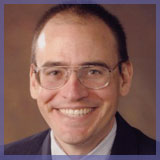 |
Richard D. Braatz view abstract | back to the agenda
Edwin R. Gilliland Professor of Chemical Engineering, MIT
Richard D. Braatz is the Edwin R. Gilliland Professor of Chemical Engineering at the Massachusetts Institute of Technology (MIT) where he does research in the modeling, design, and control of (bio)pharmaceutical manufacturing processes. He received MS and PhD degrees from the California Institute of Technology and was the Millennium Chair and Professor at the University of Illinois at Urbana-Champaign and a Visiting Scholar at Harvard University before moving to MIT. He has consulted or collaborated with more than 20 companies including Novartis, Merck, Bristol-Myers Squibb, and Abbott Laboratories. Honors include the ASEE Curtis W. McGraw Research Award, the AIChE Excellence in Process Development Research Award, the IEEE CSS Transition to Practice Award, the ISA Technical Innovation Award, and the AIChE PD2M Award for Outstanding Contribution to QbD for Drug Substance. He is a Fellow of IEEE, IFAC, and the American Association for the Advancement of Science. |
 |
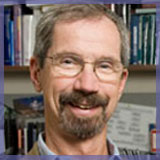 |
Charles L. Cooney back to the agenda
Robert T. Haslam (1911) Professor of Chemical Engineering, Emeritus, MIT;
Faculty Director, Emeritus, Deshpande Center for Technological Innovation, MIT
Charles L. Cooney received his BS in chemical engineering from the University of Pennsylvania in 1966, and the SM (1967) and PhD (1970) in biochemical engineering from MIT. After a short post-doc at the Squibb Institute for Medical Research, he joined the MIT faculty as an assistant professor in 1970, becoming full professor in 1982.
Cooney’s honors include the 1989 Gold Medal of the Institute of Biotechnological Studies (London); the Food, Pharmaceutical, and Bioengineering Award from the American Institute of Chemical Engineers; the James Van Lanen Distinguished Service Award from the American Chemical Society’s Division of Microbial and Biochemical Technology; and election to the American Institute of Medical and Biochemical Engineers and the Fellows of the American Chemical Society.
A consultant to multiple biotech and pharmaceutical companies, Cooney sits on the boards of Polypore International, Biocon, Ltd. (India) and multiple private companies (GreenLight Bioscience, Mitra Biotech, Pronutria, Boyd Technologies, enEvolve, Inc.). His research and teaching span many aspects of biochemical engineering and pharmaceutical manufacturing and accelerating technological innovation. |
 |
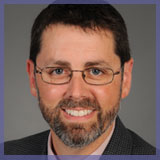 |
John Duguid view abstract | back to the agenda
Principal Process/Analytical Scientist, Aastrom Biosciences
John Duguid is a Principal Process/ Analytical Scientist at Aastrom Biosciences in Cambridge, MA. Aastrom Biosciences acquired GenzymeÕs Cell Therapy and Regenerative Medicine (CTRM) business in 2014. Mr. Duguid is currently responsible for developing, validating, and transferring molecular biology assays for rapid microbiology and cell differentiation applications, managing complex projects to implement process changes, and using statistical process control tools to implement process analytical technology for cell therapy products. He has been with CTRM since 1995.
Before taking on his current technical role, Mr. Duguid managed quality control cell therapy operations at Genzyme for over 10 years, where he designed and implemented a comprehensive cGMP compliant raw material program controlling 300-400 parts and participated in 16 vendor audits, directing 4 as lead auditor. He also represented QC during 10 FDA inspections and numerous audits from international regulatory authorities as a subject matter expert in material inspection and release, biopsy accessioning, endotoxin testing, Mycoplasma testing, analytical methods, flow cytometry, laboratory failure investigations, assay validation, and data management.
Mr. Duguid received his Bachelor of Science degree in chemistry in 1986 from the University of Michigan in Ann Arbor, MI and taught analytical chemistry in 2000 at Northeastern University in Boston, MA. Prior to joining Genzyme, he worked in analytical research at Abbott Laboratories’ Pharmaceutical Products Division in North Chicago, IL and then as a scientific consultant for Massachusetts biotechnology companies at Arthur D. Little in Cambridge, MA. Involved with the pharmaceutical and biotechnology industries for over 20 years, Mr. Duguid has technical and management experience spanning all phases of the product lifecycle from early research and development through cGMP quality operations. |
 |
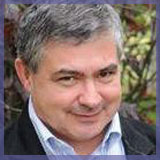 |
René Labatut view abstract | back to the agenda
Vice President, Global Manufacturing Technology, sanofi pasteur
Dr. René Labatut, PhD, is currently Vice President of Global Manufacturing Technology, in the industrial development organization of sanofi pasteur. He has more than 25 years of worldwide experience in the biopharmaceutical industry including product and bioprocess technologies development at industrial scale notably vaccines technologies and engineering; technology transfer management; licensing in-and-out; and innovation management.
He has held several positions in research, manufacturing, industrial and technical development, engineering and industrial operations risk and performance management. |
 |
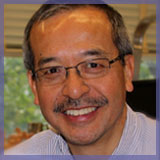 |
James C. Leung back to the agenda
Senior Research Fellow, MIT Center for Biomedical Innovation
Dr. Leung is a Senior Research Fellow at the MIT Center for Biomedical Innovation (CBI). He serves as the lead investigator for the Consortium on Adventitious Agent Contamination in Biomanufacturing (CAACB) and the key advisor to the Biomanufacturing (BioMAN) program. He participates in biotechnology education by contributing to the design and development of biotechnology-related courses and serving as a lecturer in some of these courses at MIT and Northeastern University. He maintains a strong connection to industrial practices by serving as a consultant/advisor to pharmaceutical & biotechnology companies and other research organizations. Before his current roles, Dr. Leung worked in the biotechnology industry mainly in the areas of process development, manufacturing and product development of recombinant biotherapeutics. He has held full time positions at Genentech, Inc., Repligen Corp. and Ipsen. Dr. Leung received a BSc degree from the Chemical Engineering Department at MIT. For graduate studies, he received a MSc degree and a PhD degree in Biochemical Engineering from MIT. |
 |
 |
J. Christopher Love view abstract | back to the agenda
Associate Professor of Chemical Engineering, MIT
J. Christopher Love is an associate professor in chemical engineering and member of the Koch Institute for Integrative Cancer Research at MIT. In addition, Chris is an associate member at the Eli and Edythe L. Broad Institute, and at the Ragon Institute of MGH, MIT, and Harvard. Dr. Love received his PhD in 2004 in physical chemistry at Harvard University. He extended his research into immunology at Harvard Medical School from 2004-2005, and at the Immune Disease Institute from 2005-2007. His research centers on using simple microsystems to measure and correlate multiple phenotypic and functional characteristics of individual lymphocytes, and from these single-cell data, generate quantitative, system-wide profiles of immune responses. Current areas of research in the lab include i) multiplexed, functional profiling of lymphocytes from HIV+ patients, ii) clonal analysis of autoreactive T cells and B cells in type 1 diabetes and multiple sclerosis, and iii) development of quantitative, cell-based diagnostics for allergy testing. In addition, his lab is understanding how to engineer microbial strains for manufacturing therapeutic antibodies. Dr. Love was named a Dana Scholar for Human Immunology and a Keck Distinguished Young Scholar in Medical Research in 2009, as well as one of Popular Science’s Brilliant 10 in 2010. Chris is also a Camille Dreyfus Teacher-Scholar. |
 |
 |
Gunnar Malmquist view abstract | back to the agenda
Staff Scientist, GE Healthcare Life Sciences
Dr. Gunnar Malmquist graduated in 1993 from Uppsala University with a Ph. D. in Analytical Chemistry with emphasis on multivariate data analysis applied to chromatographic separations.
Gunnar came into GE Healthcare in 2004 through the acquisition of the former Pharmacia Biotech and Amersham business. He started his career at Pharmacia Biotech in 1979, working with quality control of chromatographic separation resins and development of internal computer software and laboratory robotic systems for the quality control department.
After his Ph. D. in 1993, Gunnar transferred to the R&D department within Pharmacia Biotech where he took part in the development of the ÄKTA chromatographic system and the accompanying UNICORN software.
In 1997, Gunnar moved to the Polymer and Surface Chemistry department in R&D where he was promoted to Senior Scientist in 1999, focusing on research and development of preparative chromatographic resins. He has been responsible for the design of several of the leading resins on the market, including MabSelect and Capto. In 2004, Gunnar took on larger responsibilities as a Staff Scientist within R&D covering additional scientific areas including High Throughput Process Development, Quality by Design and Process Analytical Technology. Gunnar is currently leading a software program focusing on biomanufacturing process insights through data analytics based on GEÕs Industrial Internet platform. |
 |
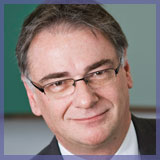 |
Peter McDonnell view abstract | back to the agenda
Senior Technical Director, Sanofi
Peter graduated with a PhD in physical organic chemistry in 1985 and has worked and been working in the Pharma industry since then, primarily in development, but also in medicinal chemistry. Since joining Genzyme (now Sanofi) 20 years ago, he has worked across many platforms including API (small molecule, biologics, polymers) and dosage forms. He has recently accepted the position of Global Innovation Strategy and External Partnership Manager for the Development function of Sanofi based in Paris. |
 |
 |
Rohin Mhatre view abstract | back to the agenda
Vice President, Biopharmaceutical Development, Biogen Idec
Rohin Mhatre has over 15 years of experience in the biotech industry of which 12 have been with Biogen Idec where he is Vice President of Biopharmaceutical Development. His group is involved in product characterization and supports process and formulation development from the pre-clinical stages to commercialization of the product. Rohin is also currently heading the Quality by Design Initiative within Biogen Idec.
|
 |
 |
Michael O’Connor view abstract | back to the agenda
Senior Scientist, Pfizer
Michael O’Connor is a Senior Scientist in Bioprocess R&D at Pfizer’s Andover, MA campus. His current work primarily involves mammalian cell culture at the pilot manufacturing scale, technology transfer support at the clinical manufacturing scale, and the evaluation of existing or emerging technologies that may improve process understanding or control.
Michael has worked at Pfizer for 5 years supporting upstream and downstream manufacturing operations for mammalian and microbial based processes. He has been a technical resource for complex investigations, commercial technology transfers, and regulatory inspections. He received Bachelor and Master of Science degrees in Chemical Engineering from the University of New Hampshire. He also holds ISPE’s Certified Pharmaceutical Industry Professional (CPIP) credential. |
 |
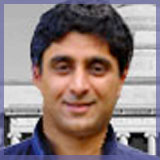 |
GK Raju back to the agenda
Chairman and CEO, LightPharma, Inc
GK is Chairman and CEO of LightPharma, Inc. a consulting and technology company that is focused on the pharmaceutical and biotechnology industry. He has been a Special Government Employee (SGE) of the US Food & Drug Administration (FDA) and has served on a number of FDA Advisory Committees for ten years. GK has also been Adjunct Professor of Industrial Pharmacy at Purdue University and Executive Director of the Consortium for the Advancement of Manufacturing of Pharmaceuticals (CAMP) for over nine years.
GK has worked with or consulted for the US FDA and most of the industry. His expertise is in defining the strategic role of pharmaceutical manufacturing and enabling its performance. He has benchmarked industry practices for many years and has been involved in multiple organizational transformation efforts including the US FDA. His work focuses on innovation and transformation (and includes areas such as Regulatory Science, Quality by Design, Risk Management, Quality Management, Benefit Risk Analysis, Lean Six Sigma, Operational Excellence, Systems Dynamics, Organizational Learning, Process Analytical Technology, Data Analysis, Knowledge Management and Business Case Development). He is the author of several publications and book chapters and a frequent speaker at international conferences.
GK earned his MS in Chemical Engineering from MIT (1989), his MBA from the MIT Sloan School of Management (1994) and his PhD from MIT (1998). |
 |
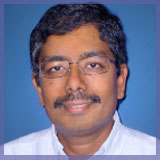 |
Kripa Ram view abstract | back to the agenda
Vice President, Bioprocess and Manufacturing Sciences (R&D), MedImmune
Dr. Kripa Ram is the Vice President of Bioprocess and Manufacturing Sciences (R&D). He is responsibile for process development, scale-up, technology transfer and manufacture of clinical trial material for MedImmune's biologics portfolio.
Prior to joining MedImmune in 2004, Kripa held a series of positions of increasing responsibility at Merck, GlaxoSmithKline and Biogen Idec. In these roles, he focused on process development and manufacture, as well as licensure of biological products including vaccines, fusion proteins and monoclonal antibodies.
Kripa holds a bachelor’s degree in chemical engineering and a doctorate in biochemical engineering from Rutgers University. He was a post-doctoral fellow at Merck Research Laboratories. |
 |
 |
Rajeev J. Ram view abstract | back to the agenda
Professor of Electrical Engineering and Computer Science, MIT
Rajeev J. Ram is Professor of Electrical Engineering and Computer Science at MIT where he is a MacVicar Fellow. His group works on optical biosensing and microfluidic control of cellular processes. During the last decade, his focus has been on developing microbioreactors for bacterial, yeast, and mammalian cell lines. His group has developed and commercialized batch, fed-batch, perfusion, and continuous culture microbioreactors. Most recently they have worked on the precise control of synthetic gene circuits using this platform. In addition to his work on microfluidics, his group has worked on rapid optical analysis techniques. They demonstrated the first quantitative Raman analysis in situ within a bioreactor. Their group has developed Raman for the quantification of metabolites in microbial and mammalian cell culture as well as for medical applications. Recently, his group has been working on the development of Raman for quantitative analysis of therapeutic proteins with potential application in real time release. |
 |
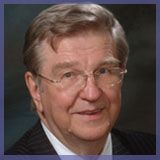 |
Anthony J. Sinskey back to the agenda
Faculty Director, MIT Center for Biomedical Innovation; Professor of Microbiology and Engineering Systems, MIT
Anthony J. Sinskey, ScD is Professor of Microbiology and Engineering Systems at the Massachusetts Institute of Technology. Professor Sinskey also holds positions as Co-Director of the Malaysia-MIT Biotechnology Partnership Program and as Faculty Director of the MIT Center for Biomedical Innovation (CBI). He conducts interdisciplinary research in metabolic engineering focusing on the fundamental physiology, biochemistry and molecular genetics of important organisms.
Professor Sinskey is well known in the biopharmaceutical industry and has been a Scientific Co-founder of several biotechnology companies, including Genzyme Corporation, Natural Pharmaceuticals, Metabolix, Merrimack Pharmaceuticals, and Tepha. Dr. Sinskey has given more than 300 presentations at US and international scientific meetings and congresses. He has received 31 issues patents, has made more than 30 invention disclosures and has published more than 300 scientific papers in leading peer-reviewed journals for biology, metabolic engineering, and biopolymer engineering.
His current research focuses on the genetics and biochemistry of carbon storage in biological systems including biopolymers and triacylglycerides. Investigations include studies with a variety of feedstocks to fuels, chemicals and biopolymers.
Dr. Sinskey received his undergraduate degree from the University of Illinois at Urbana-Champaign and his ScD in Microbiology and Food Science from the Massachusetts Institute of Technology. His post-doctoral work was done at the Harvard School of Public Health. |
 |
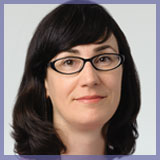 |
Stacy L. Springs, PhD back to the agenda
Director, Biomanufacturing Program; Executive Director, Consortium on Adventitious Agent Contamination in Biomanufacturing, Center for Biomedical Innovation, MIT
Dr. Stacy Springs is the Director of the Biomanufacturing Program (BioMAN) and the Executive Director of the MIT Consortium on Adventitious Agent Contamination in Biomanufacturing (CAACB) at the MIT Center for Biomedical Innovation. BioMAN is a collaborative research and educational program in biotherapeutic manufacturing that involves biopharmaceutical manufacturers, vendors, regulators, other government stakeholders and academics. The objective of this program is to develop new knowledge, science, technologies and strategies for advancing the safe manufacture and global delivery of high quality biopharmaceuticals. The CAACB was established to share information around adventitious agent contamination and risk mitigation for the benefit of the biopharmaceutical manufacturing industry and the patients receiving medications produced from cell culture.
Dr. Springs holds a PhD in Chemistry from the University of Texas at Austin and gained postdoctoral training in protein and biophysical chemistry at Princeton University. Prior to joining MIT, Stacy was a Sr. Scientist and Director of Collaborative Projects at Tetralogic Pharmaceuticals, an oncology drug discovery company based in Malvern, PA. |
 |
 |
David Sullivan view abstract | back to the agenda
Director, Bioprocess R&D Pilot Plants, Pfizer
David Sullivan is a Director in Bioprocess R&D based at Pfizer’s Andover, MA campus. His current responsibilities include leadership of Pfizer’s Non-GMP Pilot Plants that support process / technology development and manufacturing activities for a diverse portfolio of biologics and vaccine therapies. David has led or played a key role in a number of Pfizer initiatives focused on advancing process analytical technologies, adaptive manufacturing, real time release, and continuous processing.
David has been with Pfizer for 10 years in various roles of increasing responsibility within process development and clinical manufacturing. Prior to joining Pfizer, he spent 4 years at Bayer working in the Nucleic Acid Diagnostics division. He received a Bachelor of Science degree in Biotechnology from Worcester Polytechnic Institute and a Master of Science degree in Engineering Management from Tufts University. |
 |
 |
Michael J. Tarlov back to the agenda
Chief, Biomolecular Measurement Division, Material Measurement Laboratory, National Institute of Standards & Technology
Michael Tarlov is chief of the Biomolecular Measurement Division, which develops the measurement science, standards, technology, and data required to support the nation’s needs for determining the composition, structure, quantity, and function of biomolecules. This work will help to advance biotechnology, DNA forensics, biomedical and bioscience research, and health care. Mike Tarlov received a PhD in analytical chemistry from the University of Minnesota. During his career at NIST he has authored or coauthored more than 80 publications in the areas of self-assembled monolayers, biochemical sensing, and bioprocess measurements. Mike was formerly chief of the Process Measurements Division, and was acting chief of the Biochemical Science Division. Mike is also responsible for leading the cross-division NIST Biomanufacturing Program, which develops measurement science, standards, and reference data to support the development, manufacturing, and regulatory approval of protein drugs. |
 |
| |
Jette Wypych view abstract | back to the agenda
Scientific Director, Amgen
Jette Wypych is a Scientific Director in Attribute Sciences in the Process Development organization at Amgen. With more than 25 years of experience in biotechnology, Jette has been responsible for key discoveries in the area of cytokine and hematopoietic research. For the past decade she has dedicated her time to aspects of process and product development. She has contributed to the development of several programs and been responsible for the analytical characterization and formulation development of pipeline molecules and been responsible for chemistry, manufacturing and control (CMC) sections of numerous regulatory filings. Jette was intimately involved in the development, including CMC filings leading to regulatory approvals of Prolia and XeGeva, antibody therapies for the prevention of bone loss. Most recently she led the process team that developed the commercial processes and product for evolocumab, a late stage molecule targeting diseases associated with high levels of cholesterol. At Amgen, Jette has made a broad range of contributions in the areas of discovery research, analytical method developments, product characterization including IgG2 disulfide heterogeneity and linking chemical modification to certain types of aggregates. Her work has resulted in more than 40 publications and patents. |
 |
|
|
|